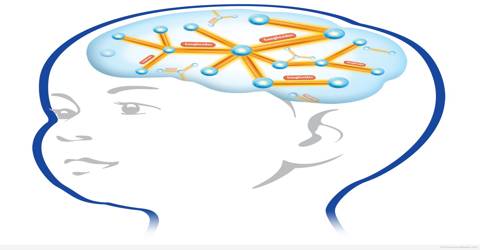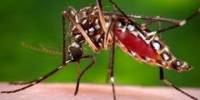Stress is a situation in which an individual experiences challenges to emotional well-being that devastate their coping ability. While some experience with convenient stress is significant for healthy improvement, prolonged, uninterrupted, overwhelming stress can have toxic effects. This type of toxic stress is habitually connected with childhood abuse and neglect.
The significance of children’s initial years has long been familiar, but our understanding of the underlying science has taken a important leap in the past decades. Studies frequently document the effects that a child’s initial experiences can have on later life and adult health.
There is a growing harmony among experts that a enter system linking childhood difficulty to later health and well-being is the stress caused by early harmful experiences. These early negative experiences apparent in neglect, emotional and physical abuse and extremely harsh parenting.
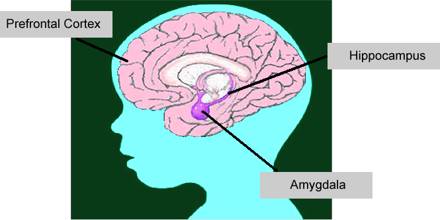
Stress effects on the brain and the rest of the body
The brain is inner to stress and adjustment because it perceives feasible danger and determines behavioral responses, ranging from fighting or fleeing, to attention and anxiety. The brain also determines health harmful behaviors such as eating too much, smoking or drinking, and sleeping badly. Through the nervous system, the brain also regulates the body’s hormonal, immune and metabolic processes that can affect many body processes at once. In turn, the hormones accountable for stress, sex, and metabolism affect the brain; they can alter the formation of neurons and their connections, influence behavior and even change the hormonal processes themselves. For example, chronic stress can enhance anxiety and reduce memory and cognitive flexibility. Fortunately, these changes in neuronal circuitry are reversible in a healthy, flexible brain.
Stress is not constantly Dangerous
Positive stress is a usual part of learning and growth. As children learn to cope with irritation, overcome obstacles and meet challenges, they will experience a assured amount of stress. This level of stress is habitually safe and convenient, particularly if a child has sustained of a healthy home environment.
It is significant to differentiate bearable stress from toxic stress. Toxic stress is the result of severe events like a death in the family, a high-conflict divorce or a long-drawn-out illness. It is potentially damaging, but responsive and receptive parenting can protect children from long-term consequences. But in order for these stresses to be managed, parents and caregivers must be conscious of the dangers, and must then be prepared with suitable helpful reaction patterns. It is our combined liability to make education on how to administer these foreseeable life events one of our highest priorities
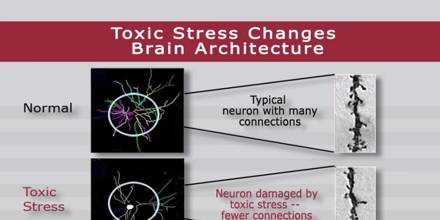
Toxic Stress during Pregnancy Affects the Baby
The brain is the principal stress organ: It is accountable for activating, monitoring and shutting down the body’s reactions to stress. Infants’ rising brains are principally susceptible; babies are affected by stress even in the defensive environment of the womb. Since maternal cortisol levels affect the developing fetus, a mother’s level of stress is directly related to the well-being of her baby. Positive and tolerable stress levels are safe, but toxic stress increases the risk of preterm delivery, low birth weight and other complications. It is also associated with impaired mental, behavioral and motor development in infancy.
HOW TO HELP
There are two vital ways to intervene on behalf of a child experiencing toxic stress. First, adults can facilitate calm a child who is upset, calm their emotions, and help their stress response system come back to usual levels. Second, adults can help teach children healthy coping skills to deal with stress later on.
The second kind of intercession involves prevention: targeting the source of toxic stress so that it doesn’t continue. This approach involves helping the caregivers. An intrusion for a parent, such as quality addiction treatment or support to leave an rude relationship, is also an intervention for the child—who will no longer experience the stressful effects of parental addiction or witnessing abuse.
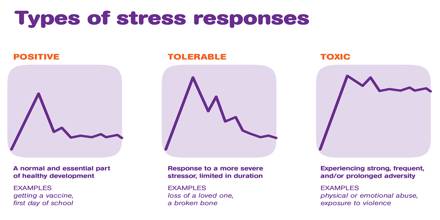
Many types of stress affect your child
None of this is good for the adult brain, but children’s fast-developing brains with dendrites numbering in the millions are especially vulnerable to ravages of cortisol. Study after study has found that children who are exposed to extremely stressful situations — via violence in the home or corporal punishment — have significantly lower IQs than children not exposed to such traumas.
Finally
Young children, whose anterior lobes are not fully developed, cannot respond sensibly to stress. Children’s responses to stress are prohibited by the further prehistoric areas of the brain. In order to handle stress and return to calm, young children requirements caregivers to soothe and reassure them that they are safe. If the environment is continuously threatening, or children do not have a dependable caregiver, they will rely on the prehistoric areas of the brain to handle stress. The brain stem will become over-developed, and areas responsible for emotional control and rational decision-making may not develop fully. Warning signs of an imbalance in brain development due to prolonged stress may include anxiety, impulsiveness, hyperactivity, poor impulse control, lack of empathy, and poor problem-solving skills.
